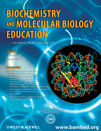
BIOCHEMISTRY AND MOLECULAR BIOLOGY EDUCATION
Scope & Guideline
Empowering educators through groundbreaking research.
Introduction
Aims and Scopes
- Innovative Teaching Strategies:
The journal promotes the development and assessment of novel teaching methods, such as gamification, inquiry-based learning, and collaborative projects, aimed at improving student outcomes in biochemistry and molecular biology. - Integration of Research and Education:
It emphasizes the importance of incorporating research experiences into undergraduate education, enabling students to engage in hands-on learning and apply theoretical knowledge in practical settings. - Use of Technology in Education:
The journal explores the application of technology, including online tools, virtual labs, and multimedia resources, to enhance learning experiences and adapt to changing educational environments. - Interdisciplinary Approaches:
It encourages the integration of concepts from various scientific disciplines, fostering a broader understanding of biochemistry and molecular biology within the context of health, environment, and society. - Assessment and Feedback Mechanisms:
The journal discusses effective assessment strategies and feedback mechanisms that support student learning and help educators refine their teaching practices.
Trending and Emerging
- Blended and Online Learning Models:
There is a growing focus on blended and online learning strategies, particularly in response to the COVID-19 pandemic, highlighting the effectiveness of combining in-person and virtual educational experiences. - Active Learning and Engagement Techniques:
Innovative active learning methods, such as problem-based learning and gamification, are trending as educators seek to enhance student engagement and foster deeper understanding of complex biochemical concepts. - Use of Data and Computational Tools:
Increased emphasis on the integration of data science and computational tools into biochemistry education is emerging, preparing students to navigate and analyze large datasets in their future careers. - Interdisciplinary Learning Experiences:
There is a rising trend towards interdisciplinary courses that connect biochemistry with other scientific fields, such as environmental science and medicine, to provide students with a holistic understanding of the subject matter. - Focus on Diversity, Equity, and Inclusion (DEI):
Emerging themes around DEI in education are prominent, as the journal encourages discussions and research on creating inclusive learning environments that cater to diverse student populations.
Declining or Waning
- Traditional Lecture-Based Methods:
There is a noticeable decline in research focused solely on traditional lecture-based teaching methods, as the journal increasingly highlights active, student-centered learning approaches that promote engagement and critical thinking. - Non-Interactive Assessment Techniques:
The journal has seen fewer studies on conventional assessment methods that do not incorporate interactive or formative feedback, reflecting a move towards more dynamic and responsive evaluation techniques. - Limited Focus on Basic Biochemistry Content:
Papers addressing fundamental biochemistry topics without innovative teaching approaches or integration with current scientific advancements are becoming less frequent, indicating a trend towards more complex and applied educational content. - Reduced Emphasis on Theoretical Frameworks:
The journal is shifting away from purely theoretical discussions in biochemistry education, favoring practical applications and experiential learning opportunities that better prepare students for real-world challenges.
Similar Journals

Research and Practice in Technology Enhanced Learning
Empowering learning with innovative research and practice.Research and Practice in Technology Enhanced Learning is a leading international journal dedicated to advancing the field of educational technology and its applications in various learning environments. Published in Taiwan, this journal has firmly established itself as an open-access platform for sharing innovative research, practical insights, and emerging trends since its inception in 2015. With an impressive Q1 ranking in Education and Media Technology for 2023, coupled with notable placements in the fields of Social Psychology and Management of Technology and Innovation, the journal underscores its significance in fostering interdisciplinary collaboration among scholars and practitioners. Its rigorous peer-review process ensures the publication of high-quality articles that contribute substantively to both theoretical and practical knowledge. The journal's commitment to open access enhances its visibility and accessibility, making it an invaluable resource for researchers, educators, and students seeking to explore the intersection of technology and learning.
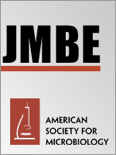
Journal of Microbiology & Biology Education
Empowering Scholars, Inspiring EducatorsJournal of Microbiology & Biology Education, published by the American Society for Microbiology, serves as a vital platform for advancing knowledge and education in microbiology and related biological fields. With an ISSN of 1935-7877 and an E-ISSN of 1935-7885, this open-access journal has been fostering scholarly communication since 2000, ensuring that vital research is accessible to a global audience. The journal covers a broad scope within the disciplines of Agricultural and Biological Sciences, Biochemistry, Genetics, Molecular Biology, and Educational methodologies, holding a significant position as reflected by its Q2 quartile rankings in multiple fields for 2023. The Scopus ranking highlights its relevance, ranking it in the 64th percentile in general Agricultural and Biological Sciences and Education, and 48th in Immunology and Microbiology. Positioned in the United States, the journal addresses the imperative need for educational resources and research dissemination in the ever-evolving landscape of microbiological sciences. Researchers, professionals, and students will find invaluable insights and pedagogical innovations within its pages, advancing both academic inquiry and educational practice.
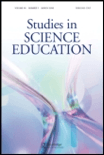
Studies in Science Education
Transforming Science Teaching for Tomorrow's LeadersStudies in Science Education is a prestigious journal published by ROUTLEDGE JOURNALS, TAYLOR & FRANCIS LTD, renowned for its commitment to advancing the field of science education. With an impressive impact factor, and categorized in the Q1 quartile within the Education domain, this journal ranks among the top in the field, currently holding the 16th position out of 1543 social science education journals, placing it in the 98th percentile according to Scopus rankings. Since its inception in 1974, it has provided a rigorous platform for researchers, practitioners, and educators to explore, debate, and disseminate significant findings relevant to science education. Although the journal does not offer open access options, it ensures high visibility through its well-curated content, including empirical studies, theoretical discussions, and innovative practices aimed at enhancing educational outcomes in science. By continuously engaging with contemporary educational challenges, Studies in Science Education serves as an essential resource for those dedicated to improving science teaching and learning worldwide.

International Journal of Technology in Education
Fostering Knowledge and Innovation in Educational TechnologyThe International Journal of Technology in Education, published by the International Society for Technology Education & Science (ISTES), serves as a vital platform for researchers, educators, and practitioners devoted to the intersection of technology and educational practices. With an E-ISSN of 2689-2758, this journal aims to showcase innovative research, case studies, and theoretical contributions that explore how emerging technologies can enhance teaching and learning. Although specific metrics like impact factor and HIndex are currently unavailable, the journal is committed to rigorous peer review and high academic standards, ensuring that all published work contributes meaningfully to the evolving landscape of educational technology. As an open-access journal, it strives to make research widely available, fostering collaboration and knowledge sharing among its audience. Whether you are a researcher exploring new horizons or a professional seeking practical applications of technology in education, the International Journal of Technology in Education is an indispensable resource.
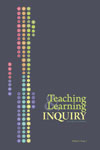
Teaching & Learning Inquiry-The ISSOTL Journal
Elevating educational research for a brighter tomorrow.Teaching & Learning Inquiry-The ISSOTL Journal, published by UNIV CALGARY PRESS, is a premier open access journal dedicated to enhancing educational practices and fostering scholarly discourse in the field of teaching and learning. With an ISSN of 2167-4779 and E-ISSN 2167-4787, this journal has been at the forefront of educational research since its inception in 2013, operating within a converged timeframe until 2024. Recognized with a Q2 ranking in Education and classified within the 55th percentile of Scopus’ rankings for education-focused social sciences, the journal aims to disseminate original research, theoretical inquiries, and practical applications that contribute to the scholarship of teaching and learning (SoTL). As an open access publication since 2016, it ensures that vital research is widely accessible, making it a critical resource for researchers, educators, and students seeking to advance their understanding and practice in the dynamic landscape of education. Based in Calgary, Canada, the journal continues to engage with innovative perspectives that shape and define the educational experience, making it an essential read for anyone invested in the future of teaching and learning.

International Journal for Technology in Mathematics Education
Bridging the gap between technology and teaching.International Journal for Technology in Mathematics Education (ISSN: 1744-2710, E-ISSN: 2045-2519) is a pioneering platform published by Research Information Ltd that focuses on the interplay between technology and mathematics education. Established to bridge the gap between pedagogical practices and technological advancements, this journal connects researchers, educators, and practitioners in a bid to enhance teaching methodologies and optimize learning outcomes in mathematics. Although its coverage in Scopus was discontinued after 2020, it continues to be a vital resource for those interested in the integration of technology into educational settings. With its significant emphasis on interdisciplinary approaches, the journal has garnered attention in the realms of social sciences and computer science, with Scopus rankings reflecting its niche contributions. This journal is crucial for professionals aiming to explore innovative techniques in mathematics education, making it an invaluable addition to any academic library.
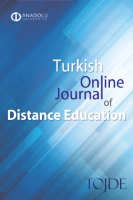
Turkish Online Journal of Distance Education
Advancing Innovations in Online Education.Turkish Online Journal of Distance Education, a distinguished publication from ANADOLU UNIVERSITY, serves as a vital resource in the field of distance education, contributing significantly to the ongoing discourse since its inception in 2000. With an impressive impact factor that reflects its standing within the academic community, this open access journal provides an influential platform for researchers, educators, and practitioners to disseminate innovative findings and educational strategies. Ranked in the Q2 category within the education sector according to the 2023 quartile rankings, and boasting a commendable position of #423 out of 1543 in Scopus' Social Sciences Education rankings, the journal places itself firmly within the 72nd percentile of its cohort. Spanning from 2004 to 2024, the journal's commitment to advancing scholarship in distance education is reflected not only in its comprehensive articles but also in its responsive engagement with contemporary educational challenges. Positioned in Eskişehir, Turkey, this journal aims to elevate discussions surrounding online learning and contributes to the global dialogue on education accessibility and innovation.
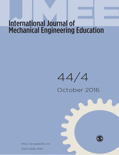
International Journal of Mechanical Engineering Education
Advancing Mechanical Minds through EducationThe International Journal of Mechanical Engineering Education, published by SAGE Publications Inc, serves as a premier platform dedicated to advancing the field of engineering education, with a specific focus on mechanical engineering. With a history dating back to 1981, this journal has established itself as a vital resource for researchers, educators, and industry professionals alike, offering insights and scholarly articles that foster innovation and improve pedagogical approaches within the discipline. The journal is currently indexed in Scopus, ranking #542 in Education and #311 in Mechanical Engineering, reflecting its significant contribution to both academic and engineering communities. Although it does not have open access options, the quality and depth of research disseminated through its pages are undeniable, making it an essential read for anyone involved in engineering education. With a Q3 categorization in both relevant fields as of 2023, the journal continually strives to enhance the learning experience and methodologies in mechanical engineering education, paving the way for a future generation of skilled engineers.
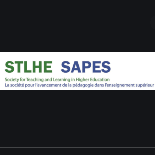
Canadian Journal for the Scholarship of Teaching and Learning
Enhancing Student Outcomes with Cutting-Edge PedagogyThe Canadian Journal for the Scholarship of Teaching and Learning (CJSoTL) is a premier open-access journal dedicated to advancing research and discourse in the field of teaching and learning within higher education. Published by SOC TEACHING & LEARNING HIGHER EDUCATION, CJSoTL serves as a vital resource for educators, researchers, and students alike, promoting evidence-based practices and scholarship in higher education pedagogy. Since its inception in 2010, the journal has provided an inclusive platform for innovative research, case studies, and pedagogical strategies that enhance teaching effectiveness and student learning outcomes. Although specific metrics such as H-index and Scopus ranks are currently unlisted, the journal is committed to fostering a community of practice among scholars dedicated to improving teaching and learning environments. With its open-access policy, CJSoTL ensures that valuable knowledge is freely available, aligning with contemporary trends in academic dissemination and accessibility, thus making significant contributions to the scholarship of teaching and learning in Canada and beyond.

International Journal of Instruction
Transforming education with high-quality, accessible research.International Journal of Instruction is a distinguished peer-reviewed journal dedicated to advancing the field of education through high-quality research and innovative instructional practices. Published by GATE Association for Teaching & Education in Switzerland, this open-access journal has been a beacon of knowledge since its inception in 2008, ensuring that impactful educational research is freely accessible to scholars, educators, and practitioners worldwide. With an impressive Q2 ranking in Education and a notable position in the 80th percentile within its category in Scopus, the journal showcases cutting-edge studies and discussions that reflect current trends and methodologies in teaching and learning. The scope of the journal includes a wide array of topics, ranging from instructional strategies to curriculum development, making it a vital resource for anyone engaged in the dynamic landscape of education. Explore the International Journal of Instruction today to contribute to and benefit from the collective wisdom of the global educational community.